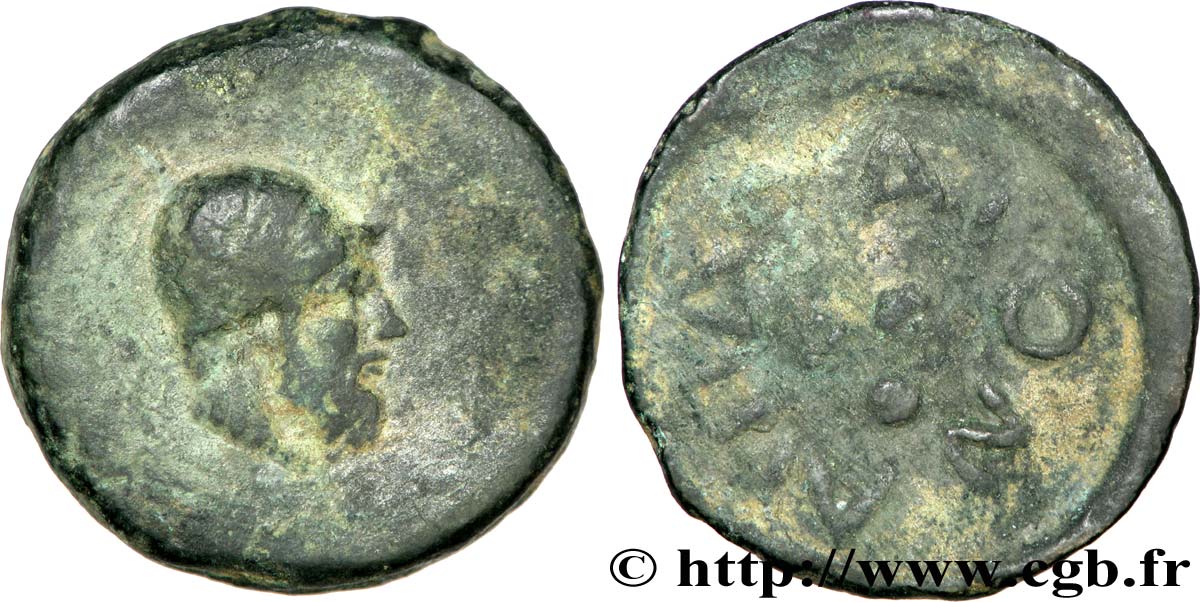bgr_322390 - SICILY - SICILIAN ISLANDS - LIPARI Tetras
Not available.
Item sold on our e-shop (2014)
Price : 750.00 €
Item sold on our e-shop (2014)
Price : 750.00 €
Type : Tetras
Date: c. 440-420 AC.
Mint name / Town : Lipari, Sicile
Metal : copper
Diameter : 31 mm
Orientation dies : 9 h.
Weight : 21,05 g.
Rarity : R2
Coments on the condition:
Exemplaire sur un flan large bien centré des deux côtés. Belle tête d’Héphaïstos. Frappe un peu molle au revers. Patine verte granuleuse
Catalogue references :
Predigree :
Cet exemplaire provient d’une collection privée et de la collection (YMSR)
Obverse
Obverse legend : ANÉPIGRAPHE.
Obverse description : Tête barbue d’Héphaïstos à droite, coiffée du pileus ; grènetis circulaire.
Reverse
Reverse description : Neuf lettres grecques en plein champ ; au centre trois globules posés en triangle ; grènetis circulaire.
Reverse legend : LIPARAION
Reverse translation : (de Lipara).
Commentary
Série lourde la plus ancienne basée sur un litra d’environ 90 grammes. Pour ce type G. Buceti a recensé quatorze exemplaires dont les poids sont compris entre 19,91 g et 28,03 g. Notre exemplaire est très proche de celui de la collection David Freedman, Triton V, n° 283.
The oldest heavy series based on a litra of approximately 90 grams. For this type, G. Buceti recorded fourteen examples whose weights range from 19.91 g to 28.03 g. Our example is very close to that of the David Freedman collection, Triton V, no. 283
The oldest heavy series based on a litra of approximately 90 grams. For this type, G. Buceti recorded fourteen examples whose weights range from 19.91 g to 28.03 g. Our example is very close to that of the David Freedman collection, Triton V, no. 283








 Report a mistake
Report a mistake Print the page
Print the page Share my selection
Share my selection Ask a question
Ask a question Consign / sell
Consign / sell





